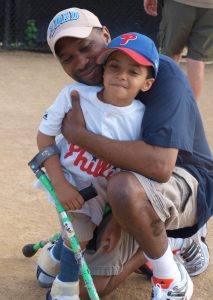
Do you have a child, teen, or college student with SA/CRS in your classroom? Regardless of age, it’s important to know that misconceptions about individuals with physical disabilities are common. As a teacher, it’s important for you to model interactions and instruction that allow the student to access the curriculum and social interaction without physical or attitudinal barriers.
The University of Illinois has some recommendations at this link for etiquette and instructional strategies that may be helpful.
Some information for teachers about accommodating students with mobility-related disabilities may be found here.
You might be interested to know that several adults who have SA/CRS are teachers themselves!
Here are some quick tips for elementary school teachers.
Be Creative!
There are many creative ways to ensure that a child with a mobility-related disability is included without barriers.
- Provide access to students in the classroom and at the library about the condition. iSACRA offers a children’s …ebook about growing up with SA/CRS
- Avoid terms such as “confined to,” “afflicted,” “suffers from,” “victim of,” “dependent on,” “bound to,” “handicapped,” “crippled,” “deformed,” and “invalid.” Avoid referring to other students as “normal.” Check out the Power of Language page for more tips.
- When necessary to describe or introduce a young student, you might say something like:
(Name of student) uses crutches. For distances, sometimes (name) uses a wheelchair. (Name) can push her/his own wheelchair, so don’t push the chair unless you are asked. (Name) has a condition called sacral agenesis/caudal regression syndrome. This means the lower part of his/her spine didn’t form. We can read more about that in this book. Remember that (name) can do just about everything other students can do but might do things a bit differently. (Name) may also be able to do some things that other students can’t do!
- Make sure that your field trips and special school events do not restrict participation for the child with a mobility related disability.
“Special Awards?”
Expect children with mobility-related disabilities to perform at the same level as other students in the classroom. If you attribute characteristics of “heroic” or “inspiring” to the child, make sure it is for a task that would be considered heroic or inspiring of any child. If you are handing out student awards, make sure that the award the child with a physical disability is receiving an award for an outstanding performance at the same level of expectation as any other child. Simply attending class or participating in gym is not heroic or inspiring or worthy of special recognition and award. Awards and praise simply for showing up are in a way saying that you don’t expect anything more from this child.
Although each child is different, usually accommodations for children with SA/CRS are related to the topics below. (Needs change as the child matures.) For a full listing of accommodation considerations, click here
School-related accommodations might include some or all of the following:
- School transportation
- Access to the all areas of the school
- Access to classroom instruction
- Access to school-related activities and extracurricular activities
- Social acceptance among peers
- Accommodating medical-related absences
- Fostering self-advocacy and transition
- Nursing or aide support for medications or toileting
- Adapted physical education
- Physical therapy or occupational therapy support or consult
